Social Struggles of Cancer Survivors and Awareness begin with understanding that cancer is far more than a physical illness. It is a disease where abnormal cells grow uncontrollably in the body and may spread to other organs, disrupting normal bodily functions. However, cancer does not just affect the body; instead, it initiates a life-altering journey that deeply transforms an individual’s physical, emotional, and social identity. From the very start, the medical path from diagnosis through treatment and into survival is incredibly challenging. Yet, the social dimensions of this journey often remain overlooked and deserve equal attention.
Usually, when people talk about cancer, they focus on chemotherapy, surgeries, and remission. Nevertheless, the real story of the social struggles of cancer survivors and awareness begins when treatment ends. Physically, survivors may deal with hair loss, amputation, or other body image issues. Emotionally, the trauma of fighting a life-threatening illness often lingers long after medical treatment concludes. Unfortunately, society’s lack of understanding and preparedness makes it hard for survivors to reintegrate comfortably. Clearly, the social struggles of cancer survivors and awareness must be amplified to create a more compassionate and inclusive environment for those on the path to healing.
Types of Cancer and their Impact:
| Type of Cancer | Primary Symptoms | Impact on Patients |
| Breast Cancer | Lump in breast, nipple discharge, breast pain | Body image concerns, emotional distress, fear of recurrence |
| Lung Cancer | Persistent cough, chest pain, shortness of breath | Breathing difficulties, fatigue, often late diagnosis leading to advanced treatment |
| Colorectal Cancer | Blood in stool, abdominal pain, changes in bowel habits | Digestive issues, weakness, need for lifestyle and dietary changes |
| Leukemia (Blood) | Frequent infections, fatigue, bruising or bleeding easily | Immune system compromise, long-term chemotherapy, isolation |
| Brain Tumors | Headaches, seizures, memory loss, vision changes | Cognitive decline, emotional instability, loss of independence |
| Prostate Cancer | Difficulty urinating, pelvic discomfort | Emotional stigma, impact on intimacy, long recovery |
| Ovarian Cancer | Bloating, pelvic pain, early satiety | Subtle symptoms lead to late detection, fertility and hormonal concerns |
| Skin Cancer | Changes in moles, skin lesions | Visible scarring, lifestyle adjustments, fear of recurrence |
| Cervical Cancer | Abnormal bleeding, pelvic pain | Affects reproductive health, stigma in some cultures |
Real – Life cancer Fighter:
1. Mahima Chaudhry as a cancer survivor
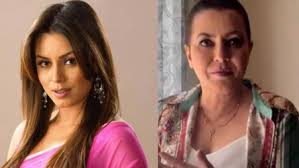
Mahima Chaudhry, a leading face in Bollywood (Superhit movie – “Pardes“), faced a silent battle when she was diagnosed with breast cancer. Although her treatment was successful, the journey was emotionally challenging. In fact, she opened up about the social struggles of cancer survivors and awareness, highlighting how isolation and fear often overshadow recovery. Moreover, she stressed the importance of timely checkups and supportive communities. Her brave disclosure not only inspired millions but also broke the stigma surrounding survivorship. Consequently, Mahima Chaudhry’s story continues to raise critical awareness and brings much-needed attention to the real-life challenges survivors silently endure.
2. Sonali Bendre as a cancer survivor
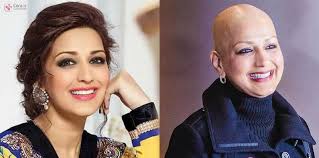
Sonali Bendre, a beloved Bollywood actress, bravely battled metastatic cancer with unwavering strength. Importantly, she shed light on the social struggles of cancer survivors and awareness, emphasizing how survivors often face silent judgments and emotional isolation. Furthermore, her candid posts during treatment inspired thousands to face their fears with hope. As a result, Sonali became a symbol of resilience and honesty. Today, she continues to advocate for awareness, showing that survival is not just medical—but deeply social too.
3. Emraan Hashmi’s son as a cancer survivor
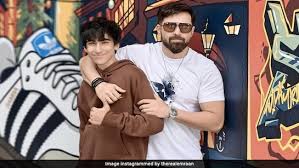
Emraan Hashmi’s son, Ayaan, was diagnosed with cancer at a very young age, shaking the actor’s world. Thankfully, after intense treatment and unwavering family support, Ayaan emerged victorious. However, the journey wasn’t just about medical recovery. Emraan openly discussed the social struggles of cancer survivors and awareness, especially from a child’s perspective. Moreover, he highlighted how emotional trauma, public perception, and fear impact both the survivor and the family. Through his son’s battle, Emraan helped bring national attention to childhood cancer and its hidden social impact.
4. Irrfan Khan and his battle with cancer

Irrfan Khan, one of India’s most revered actors, faced a rare form of cancer—neuroendocrine tumor—with immense grace and quiet resilience. Though he rarely discussed it in public, his journey reflected the deep social struggles of cancer survivors and awareness. Despite global fame, he chose solitude during treatment, revealing how even icons experience vulnerability. Moreover, his return to films with Angrezi Medium symbolized determination and courage. But sadly, his passing in 2020 was a profound loss. However, Irrfan’s life and struggle continue to spark conversations, ultimately encouraging empathy, respect, and greater awareness about the emotional battles cancer survivors endure.
The Role of Media, Community, family Support and Government Role:
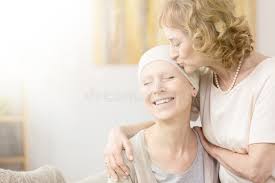
Media can play a transformative role in changing public perceptions. It contributes positively to the social struggles of cancer survivors and awareness. Films, books, and interviews that tell raw and honest stories can break the stigma and normalize survivorship. However, the media one-dimensional portrayal does little to educate the public or support awareness efforts meaningfully.
Community and family initiatives offer tremendous support to cancer survivors. However, many survivors have reported being treated differently—whether in workplaces, social circles, or even within their own families. As a result, they frequently experience fear, anxiety, and depression. To address these challenges, peer support groups play a vital role by providing safe and understanding spaces for open dialogue. Moreover, such platforms contribute significantly to easing the social struggles of cancer survivors and awareness, helping them feel seen, heard, and less isolated in their journey toward healing.
The government can play a crucial role in easing the social struggles of cancer survivors and raising awareness through robust policy changes. Like providing healthcare subsidies, and supporting long-term rehabilitation must be implemented and enforced effectively.
Moreover, tax exemptions, skill development programs, and social reintegration services should be part of national health policies. Survivors are valuable members of society and deserve every opportunity to lead fulfilling lives.
Hospitals, NGOs, and social enterprises are gradually recognizing the need for comprehensive survivorship programs. These include counseling, financial aid, job training, and social reintegration services. Nonetheless, these efforts need widespread adoption and public participation. Campaigns must push for integrating psychological support into post-treatment care packages. Survivors must not be left alone to navigate their emotions in silence.
Education for Social Change:
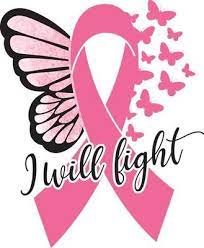
One of the most effective strategies to combat the social struggles of cancer survivors and awareness is education. When schools, workplaces, and communities are educated about the realities of cancer and survivorship, empathy and understanding increase.
Workshops, awareness drives help survivors feel seen and heard, but also foster a compassionate environment where their struggles are validated and supported.
Rather than viewing survivors through a lens of pity, society must learn to celebrate their resilience. A shift in narrative from victimhood to empowerment is essential in addressing the social struggles of cancer survivors and awareness.
Cancer survivors are not just statistics. They are fighters, caregivers, parents, artists, professionals, and dreamers. Their journey demands respect, not sympathy. Celebrating survivorship in all its forms can inspire others and break the barriers of silence and shame.
Links for Cancer Patient are:
National Cancer Institute (NCI) – U.S.
- Website: https://www.cancer.gov
- Offers detailed cancer types, treatment options, and clinical trials.
Cancer Research UK
- Website: https://www.cancerresearchuk.org
- Provides research, awareness, patient guides, and survivor stories.
American Cancer Society
- Website: https://www.cancer.org
- Comprehensive support including financial aid, treatment info, and caregiver tips.
Macmillan Cancer Support (UK)
- Website: https://www.macmillan.org.uk
- Emotional, practical, and financial help for those living with cancer.
